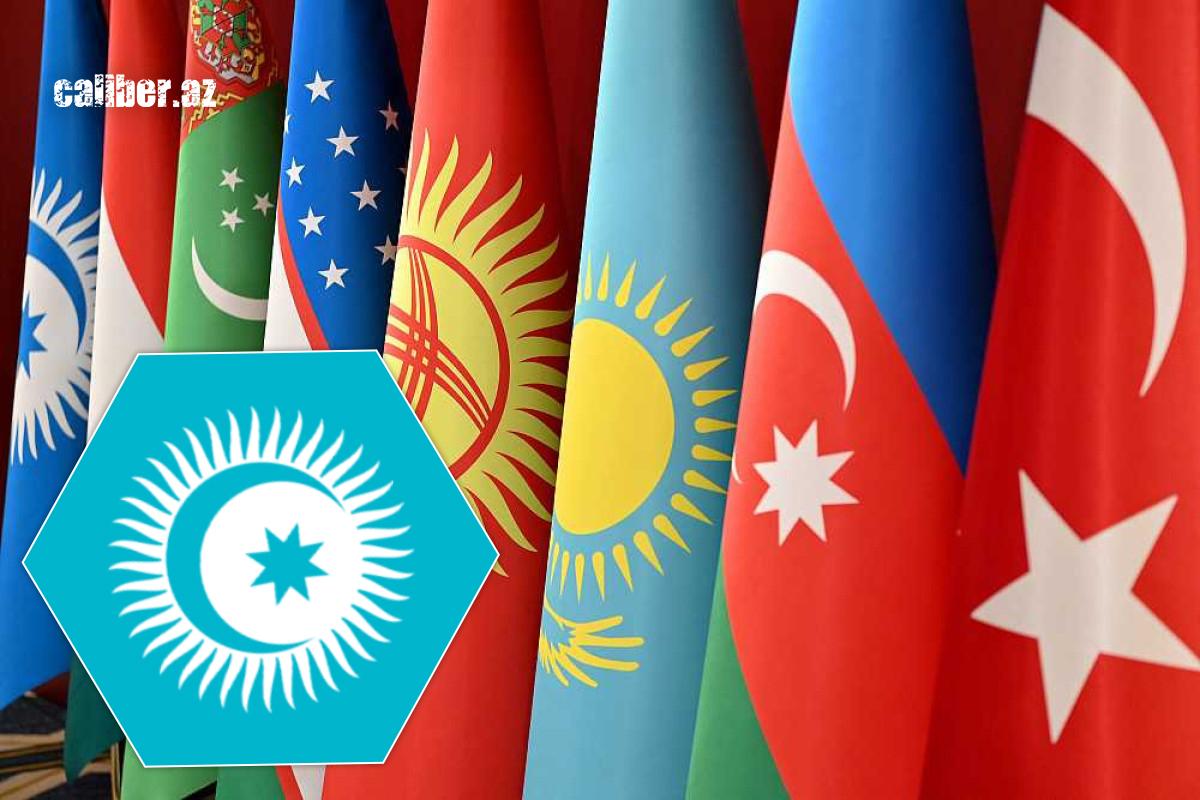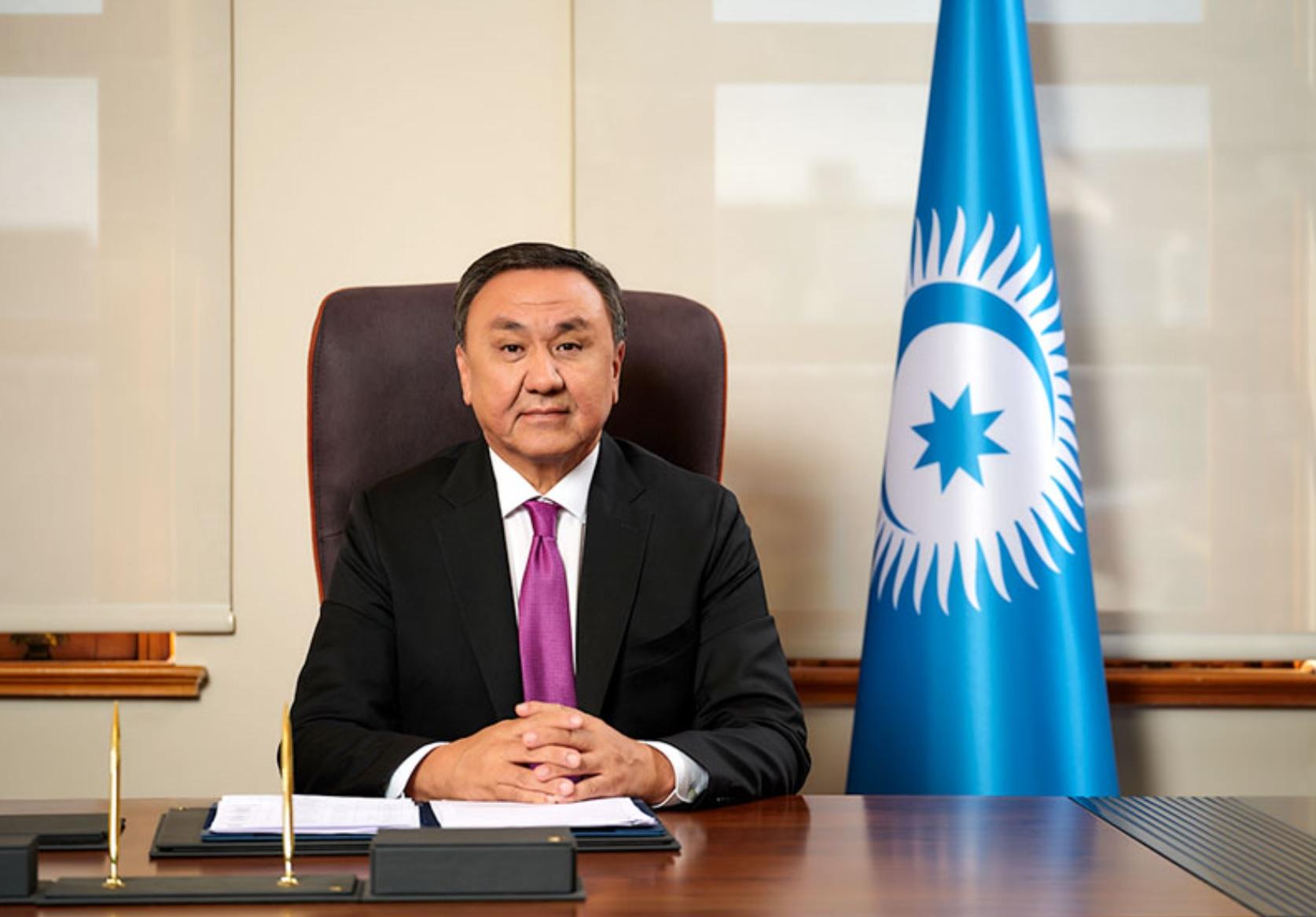Turkic states promote brotherhood, mutual assistance Baku-hosted events contribute to cooperation
In recent years, Azerbaijan, Central Asian states and Türkiye have been building new joint platforms under the Organization of Turkic States (OTS) in order to expand non-oil trade, cargo transportation, joint investment initiatives in agrarian, industrial, telecommunication and space spheres. The existing potential and prospects for further cooperation of the OTS countries were discussed during the Turkic States Economic Forum 2024, as well as the 6th World Forum on Intercultural Dialogue held in Baku.
In a relatively short period of time, the Organization of Turkic States has managed to take its rightful place in the international arena, and thanks to the unyielding will of its member countries, it has managed to launch sustainable and viable integration mechanisms in the economic sphere, formulating the contours of the Turkic world as a new geopolitical reality. The need for such integration at the moment is extremely urgent given the negative changes of recent years: trade wars that have grown into a civilizational confrontation between the global West, East and South threaten to disintegrate the world economy.
Today, the Turkic world, geographically located in the vast expanses of the Caspian-Black Sea region and the Middle East, along its perimeters faces tangible risks associated with military conflicts, sanctions confrontation and geopolitical changes in the Eurasian space. However, together with certain risks, these circumstances have opened a window of opportunity for the OTS countries in the field of trade and transport cooperation: given the breakdown of traditional logistics, the Turkic world now offers alternative transit routes from China to Europe.
Located on the eastern coast of the Caspian Sea, Kazakhstan, Turkmenistan, and landlocked Uzbekistan and Kyrgyzstan, together with Azerbaijan and Türkiye, are deepening cooperation within the three main vectors of the Middle Corridor - Europe-the Caucasus-Asia (TRACECA), the Trans-Caspian International Transport Route (TITR), and the Lapis Lazuli route. The partner countries agree on plans to optimize regional logistics, modernize and introduce digital technologies in transport infrastructure, unify transportation tariffs and customs legislation. And in recent years, the OTS countries have been expanding cooperation in the renewable energy sources (RES) area, space and IT, tourism, education and youth policy sectors.
A new format of investment cooperation among the OTS countries has also been launched: the Turkic Investment Fund (TYF) is being established, and agreements have been reached on joint business endeavors in strategic areas of the agricultural sector and strengthening food security.

At the same time, Türkiye, Azerbaijan and brotherly Turkic-speaking states in the Central Asian region, as well as Hungary, which actively cooperates with the OTS countries, are building new mechanisms to increase non-oil trade. In particular, since March 2021, a preferential trade regime has been in place, within which a zero rate of customs duty was introduced for mutual supplies of a number of goods between Türkiye and Azerbaijan. Similar agreements are planned to be signed soon by other OTS countries.
This, as well as the simplification and digitalization of trade mechanisms under the "Trade Facilitation Strategy" will have a positive impact on the expansion of trade relations within the OTS in the medium term.
"The member countries of the Organization of Turkic States have significant potential to increase the total joint trade turnover, which currently exceeds $42 billion," Turkish Ambassador to Azerbaijan Cahit Bagci said as he addressed the Turkic States Economic Forum 2024 held in Baku.
It is worth recalling here that the trade turnover between the OTS countries, which reached $42.3 billion in value terms in 2023, increased by 27.3 per cent compared to the previous year, while the total trade turnover of the Turkic states with the world amounted to about $1.3 trillion. It is important to note that Azerbaijan accounts for almost a quarter of the total trade turnover between the OTS member countries, and last year its volume amounted to about $9 billion. In general, due to their rich natural resources and favorable location on the trade corridor of the "Great Silk Road", the OTS countries have a huge potential for further increase in trade volumes and its diversification through non-resource goods.
"Trade turnover between the countries of the Cooperation Council of Turkic Speaking States has been growing in recent years, and these countries have great economic potential," OTS Deputy Secretary General Ömer Kocaman said in a video message to the participants of the Turkic States Economic Forum 2024.
The trade and economic potential of the Turkic region is indeed impressive, taking into account a number of objective facts: the total GDP of the OTS countries exceeds $1.5 trillion, and the population has exceeded 160 million people and is growing very dynamically, and due to the predominance of young people, the availability of a relatively inexpensive and qualified labor market and a favorable business and investment climate, Turkic countries are attractive for the localization of production clusters.
In particular, speaking in Baku, Turkish diplomat Bagci emphasized that the OTS promotes the development of economic and trade relations between the member countries, citing as an example the "Memorandum of cooperation on the integration of energy systems" signed between Azerbaijan, Kazakhstan and Uzbekistan, noting that this document is another indicator of the strategic importance of the region. The document signed on May 1 in Tashkent envisages to stimulate the implementation of joint goals in "green" energy production and its export to Europe through the territory of Azerbaijan, as well as integration of energy systems and organization of efficient use of resources in the segment of RES.

In general, the "green" agenda is an important trend in the joint endeavors of the OTS countries: thus, on May 1, Baku hosted a session on "Sustainable path to a green future: joint activities during and after COP29" on the margins of the 6th World Forum on Intercultural Dialogue. During the forum, OTS Secretary General Kubanychbek Omuraliev noted that climate change, green future and other environmental topics remain top priorities in the agenda of the Turkic states and in the strategy for 2020-2026, much attention is paid to environmental protection in the national and joint policies of the Organization's member states.
The OTS Secretary General also emphasized the importance of holding the 29th session of the Conference of the Parties to the UN Framework Convention on Climate Change in Baku: "COP29 is a key international forum on climate change, and the OTS member states will present their climate strategies here. We expect this event to be an effective and important platform in many ways."
Supported by the Food and Agriculture Organization of the United Nations (FAO), the OTS countries cooperate in the introduction of digital and "green" technologies in the agricultural sector, work is underway to reduce losses in irrigation and the development of water-saving irrigation systems. Joint investment projects are also planned in the sphere of agricultural production, a unified agro-info platform is planned to be created, as well as joint manufacturing of food products under the OTS-Made brand.
Cooperation in the information and communication sector is seen as a high priority for the OTS countries: including the laying of an optical cable across the Caspian Sea, the construction of DATA centers, and the formation of a regional digital hub. Turkic cooperation is also developing in the field of space research, and joint projects on launching communication satellites and optical low-orbit vehicles are planned in the future. And recently, as part of the meeting of heads of space agencies of the OTS countries, a commercial contract was signed between the Space Agency (Azercosmos) under Azerbaijan’s Ministry of Digital Development and Transport and Turkish satellite communications operator Türksat, which envisages the use of resources of Azerspace-2 satellite in Africa by Turkish partners and Azerbaijan's reciprocal access to new satellite technologies of Türksat.








